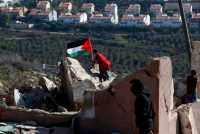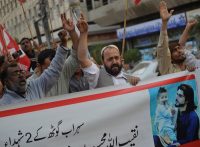
Sin latinos no hay Casa Blanca
Cada cuatro años, sin excepción, los dos principales partidos políticos de Estados Unidos tratan de enamorar a los electores latinos para que voten por su candidato a la presidencia. El objetivo es claro: sin latinos no hay Casa Blanca.
Es un ritual predecible y, muchas veces, cargado de cinismo y ambición política. Es como si el Partido Republicano y el Partido Demócrata nos redescubrieran cada cuatro años para, luego, olvidarse de nosotros hasta la siguiente elección. El espectáculo es tan obvio y desvergonzado que hasta le han dado un nombre: el síndrome de Cristóbal Colón.
Y conforme crece el número de votantes hispanos, el proceso de convencimiento se ha hecho mucho más sofisticado.… Seguir leyendo »














